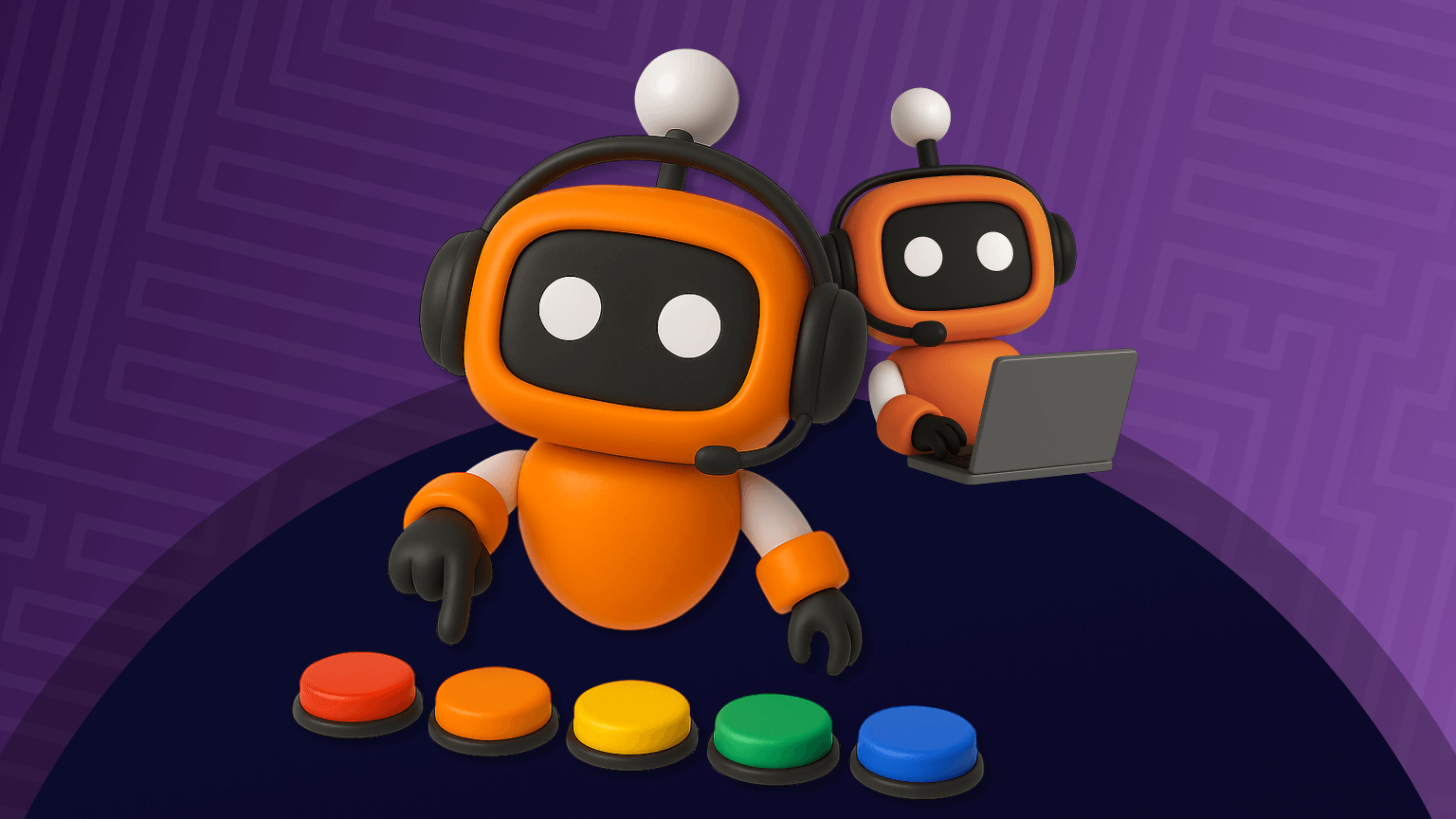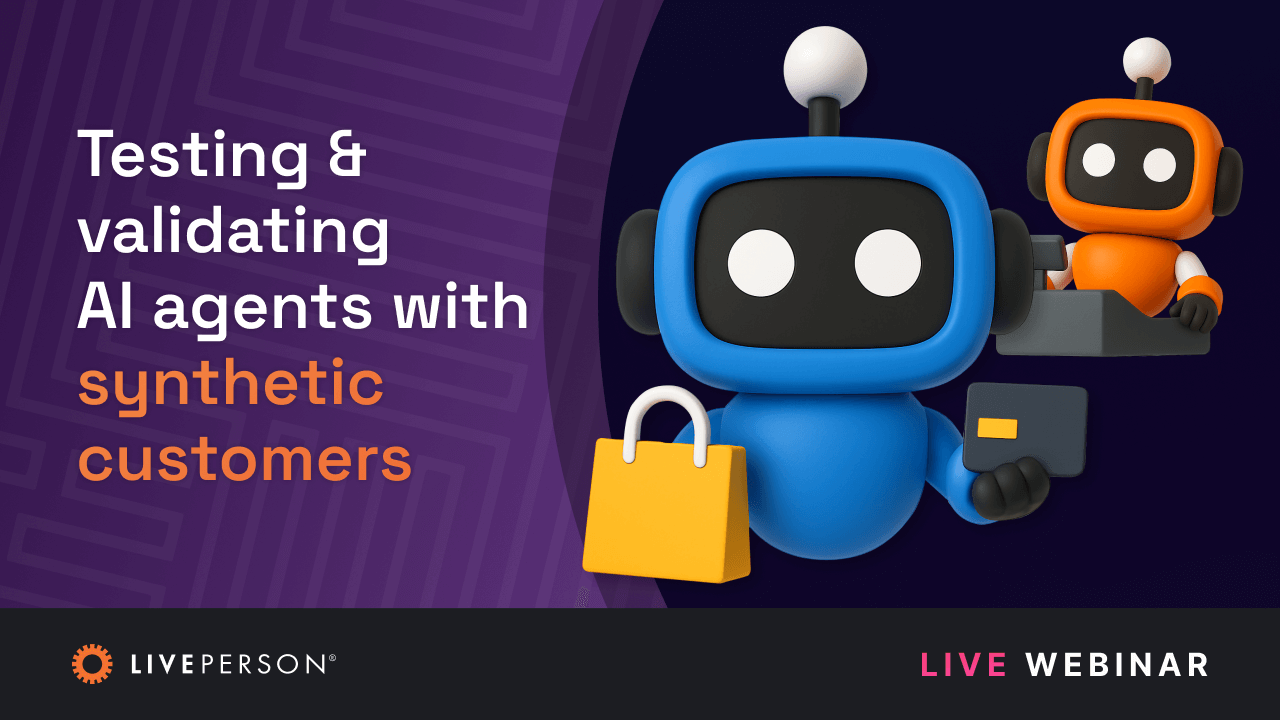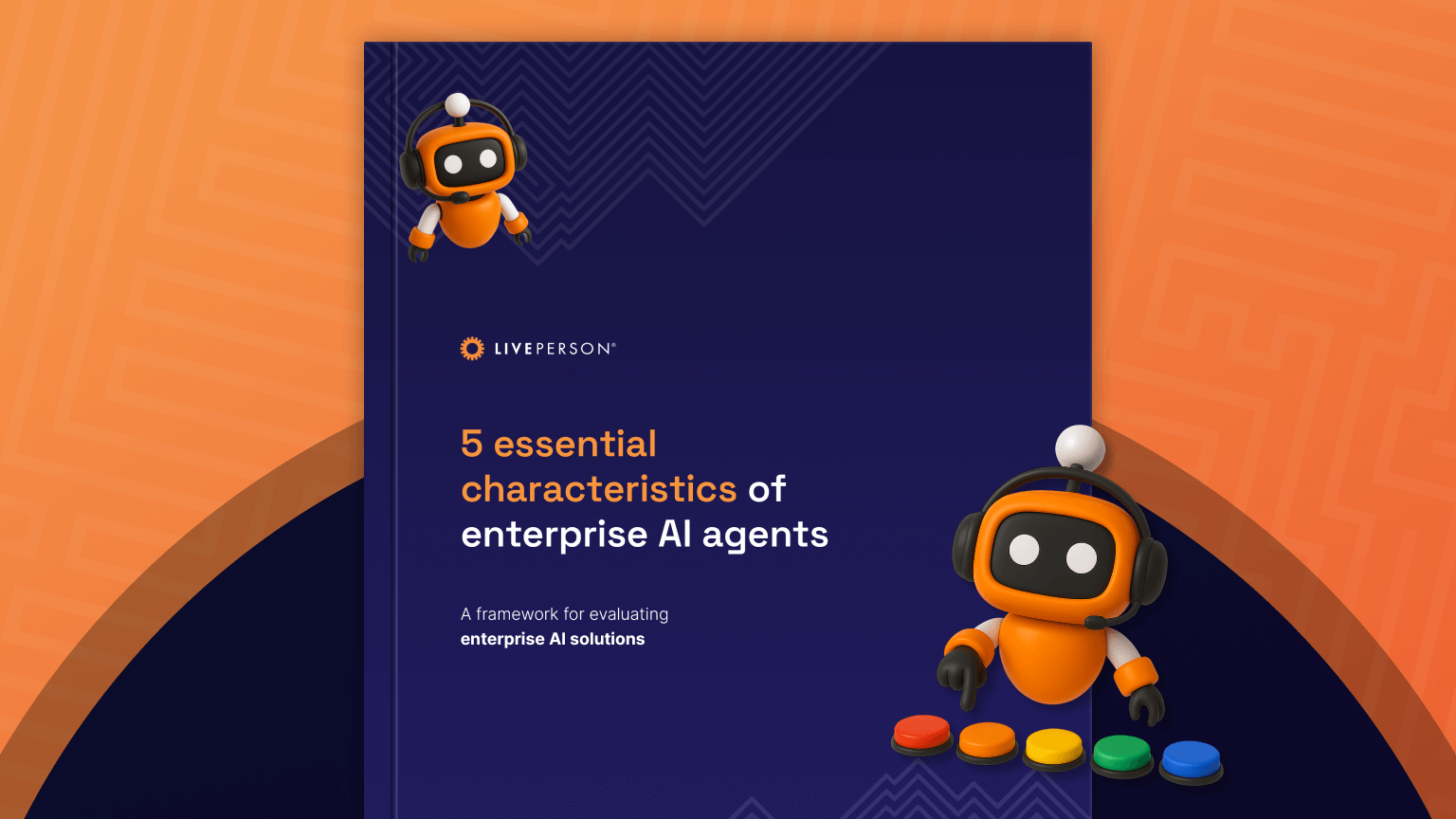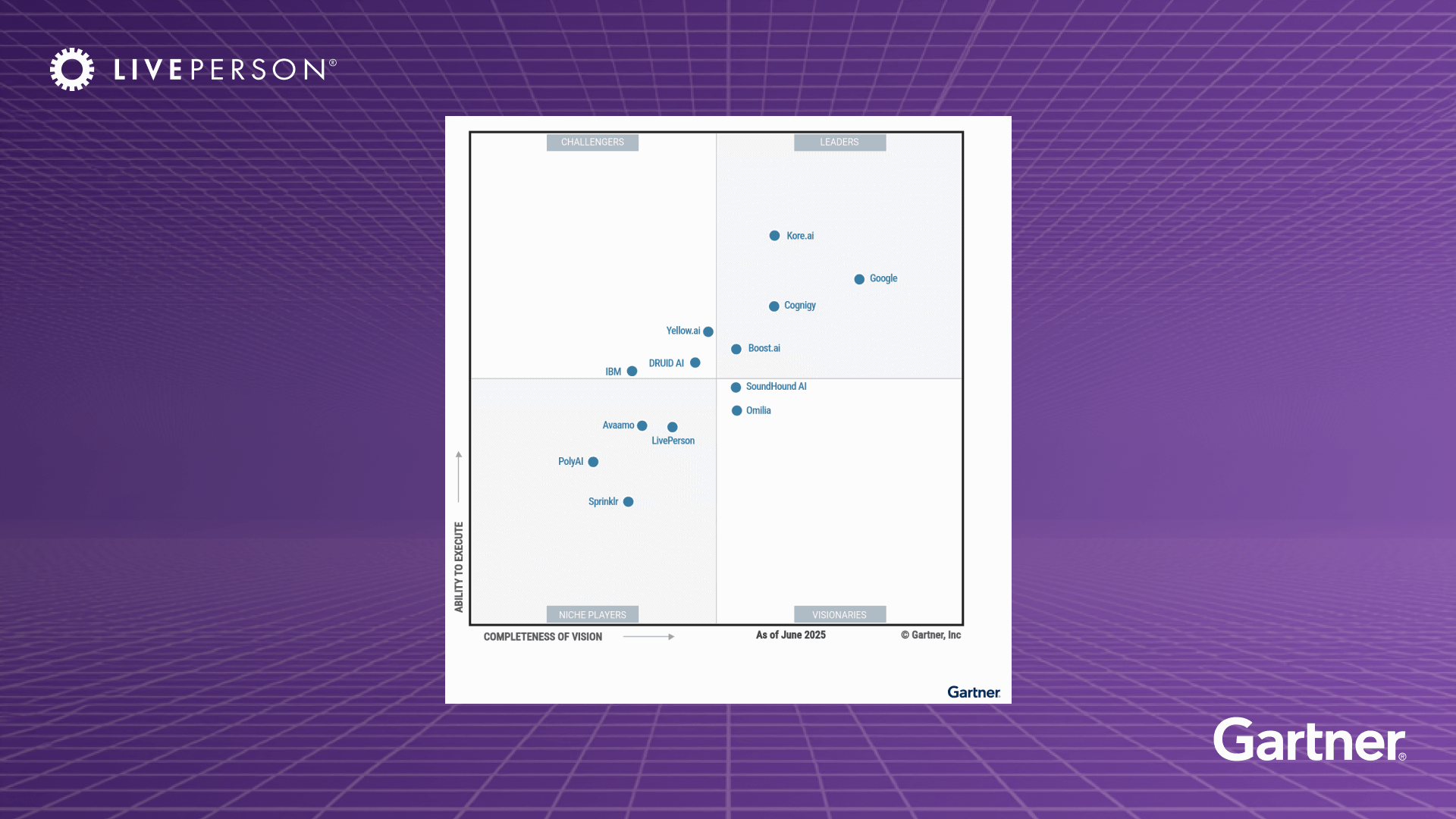article
How agentic AI is reshaping CX
Learn how agentic AI transforms CX with intelligent, goal-driven AI agents that personalize, adapt, and solve complex problems in real time.
June 26, 2025 • 6 minutes

The customer experience landscape has evolved dramatically from basic automation and rigid chatbots. Today, businesses are harnessing artificial intelligence in the form of agentic AI to create intelligent customer experiences that adapt, reason, and solve problems with human-like sophistication — representing a fundamental shift in how companies approach customer engagement.
Agentic AI is transforming customer expectations across industries. Where customers once accepted static, scripted interactions, they now experience dynamic conversations that understand context, anticipate needs, and deliver personalized solutions in real time. The result? Higher satisfaction rates, faster resolutions, and operational efficiencies that were previously unattainable.
But what exactly is agentic AI, and how are businesses using these AI capabilities to revolutionize their customer experience? The answer lies in understanding how agentic systems move beyond simple automation to create intelligent, goal-oriented interactions.
The power of agentic AI systems to make decisions
At its core, agentic AI represents a fundamental shift from reactive to proactive conversational customer service. Unlike traditional automation that follows predetermined paths, agentic AI-powered agents possess the ability to plan, reason, and make autonomous decisions (requiring minimal human intervention) to achieve specific goals.
At LivePerson, an AI agent is considered agentic when it has:
- A goal that requires planning and faces situations where the next step isn’t obvious.
- A set of choices (tools or actions) that allow interaction with the environment in novel ways.
- A reasoning mechanism to select among those choices.
- An understanding of whether it has achieved its assigned goal.
This goal-oriented planning enables AI agents to handle complex customer scenarios that would traditionally require human intervention. Consider a customer seeking to resolve a billing discrepancy while simultaneously updating their service plan — an agentic AI agent would reason through the optimal sequence of actions for each specific task while maintaining context throughout the conversation.
The conversational freedom that agentic AI capabilities provide transforms the entire customer interaction model. Instead of forcing customers to navigate rigid menu structures or follow predetermined conversation flows, these AI agents learn from and adapt to natural dialogue patterns. Customers can provide information and ask questions whenever they want, creating conversations that feel genuinely human rather than mechanical.
This autonomous decision-making capability also dramatically improves the speed and quality of customer resolutions. When an agentic agent encounters a novel situation, it doesn’t break down or transfer immediately to a human. Instead, it reasons through available options, leverages relevant data and context, and takes intelligent action to move toward resolution.
Creating personalized customer journeys with AI agents
Personalization in customer experience has traditionally meant segmenting customers into broad categories and tailoring messaging accordingly. Agentic AI takes personalization to an entirely different level by creating truly individualized experiences that adapt in real time based on customer behavior, preferences, and historical interactions.
LivePerson’s AI agents analyze customer behavior, history, and preferences to deliver tailored responses and proactive assistance. This customization increases satisfaction and engagement with relevant, contextual interactions that go far beyond simple demographic targeting.
What makes agentic personalization particularly powerful is its ability to adapt during conversations based on real-time data and customer signals. If a customer expresses frustration, changes their requirements mid-conversation, or reveals new information about their situation, agentic AI agents can immediately adjust their approach, actions, and recommendations to better serve the customer’s evolving needs.
Agentic AI systems may also continuously improve customer interactions and how they handle complex scenarios over time. These agents don’t just remember individual customer preferences — they identify patterns across interactions that inform better decision-making for future conversations. This creates a compounding effect where service quality improves systematically as the system processes more customer interactions.
For example, an AI agent handling automotive test drives might learn that customers who express interest in fuel efficiency are more likely to respond positively to hybrid vehicle recommendations when presented alongside specific cost-saving calculations. This insight then informs how the agent approaches similar customers in the future, creating increasingly effective personalization strategies.
Building an ecosystem of specialized agentic solutions
The most sophisticated implementations of agentic AI don’t rely on a single, monolithic system. Instead, forward-thinking businesses are creating networks of specialized agentic AI solutions that work together to solve increasingly complex customer problems.
LivePerson’s approach exemplifies this ecosystem thinking. Different AI agents with varying levels of agency (ability to operate independently and execute tasks) collaborate seamlessly to deliver comprehensive customer experiences. A Routing AI agent might automatically direct conversations to the best bot, human, or skill using generative AI and real-time context, while a KnowledgeAI agent powered by Retrieval-Augmented Generation pulls accurate, contextual answers from the brand’s knowledge base.
This collaborative approach allows businesses to leverage agentic capabilities precisely where they add the most value. Not every interaction requires full autonomy — sometimes a knowledge-based AI agent working within an agentic ecosystem alongside other AI agents is the most efficient solution. The key is creating systems where the entire ecosystem is agentic, even if individual components have different levels of agency.
Data collection AI agents gather information for repetitive tasks through natural conversations, while custom AI agents built with LivePerson’s generative AI development platform tackle complex tasks like post-purchase follow-ups or fraud checks. Each AI agent operates within its area of expertise while maintaining the ability to collaborate and hand off to other agents when appropriate.
This specialization enables businesses to address customer needs with unprecedented sophistication. A customer service inquiry that begins with a simple product question might evolve into a complex technical support issue requiring multiple specialized agents working in sequence, all while maintaining conversation continuity and context.
Integrating agentic AI models in the real world: Making a difference
1. Complex workflows and problem-solving at scale
Agentic AI excels at resolving multi-step customer issues that traditionally required multiple touchpoints or extended resolution times. Consider scheduling a test drive that matches specific customer preferences — an agentic AI agent can ask about budget and vehicle type, cross-reference vast amounts of data to identify matching vehicles, gauge customer reactions to adjust suggestions, access scheduling APIs to check availability, and confirm appointment details.
This end-to-end problem-solving capability transforms customer expectations around service complexity. Issues that once required multiple calls or interactions can now be resolved in a single, intelligent conversation.
2. Proactive engagement that anticipates needs
Rather than simply responding to customer queries, agentic AI can anticipate needs before they’re articulated. By analyzing customer behavior patterns, purchase history, and contextual signals, these systems enable AI agents to proactively offer assistance, recommendations, or solutions that enhance the customer experience.
This proactive capability is particularly valuable in industries like financial services, where agentic AI can recognize patterns of potential fraud and initiate protective measures, or in healthcare, where agents can provide timely reminders to improve patient outcomes.
3. Consistent cross-channel experiences
Agentic AI enables seamless experiences across all customer touchpoints. Whether a customer begins an interaction via chat, continues on mobile messaging, or completes it over the phone, agentic capabilities ensure consistent context, tone, and service quality throughout the journey.
4. Measurable ROI improvements
Companies implementing LivePerson AI agents have achieved significant results:
- Doubled lead qualification rates
- Reduced response times significantly
- Achieved 60% savings on support costs
- Increased Net Promoter Scores by 5 points
These improvements reflect the fundamental efficiency gains that agentic capabilities bring to conversational customer service and commerce operations.
The future of customer experience is agentic
Agentic AI innovation represents a fundamental shift in customer expectations for service quality. Customers increasingly expect interactions that are intelligent, personalized, and capable of resolving complex problems without friction. Businesses that embrace agentic capabilities position themselves to meet these evolving expectations while achieving significant operational efficiencies.
LivePerson has established itself as a leader in implementing practical, results-driven agentic solutions that deliver measurable business value. Our approach focuses on deploying agentic capabilities where they create the most impact, whether through autonomous problem-solving, intelligent routing, or personalized customer journeys.
Ready to discover how agentic AI can transform your customer experience strategy?
Connect with LivePerson to explore how our agentic AI solutions can address your specific business needs and drive meaningful engagement with measurable outcomes. And don’t miss the first blog in this series that explores the real meaning behind “what are AI agents?”




